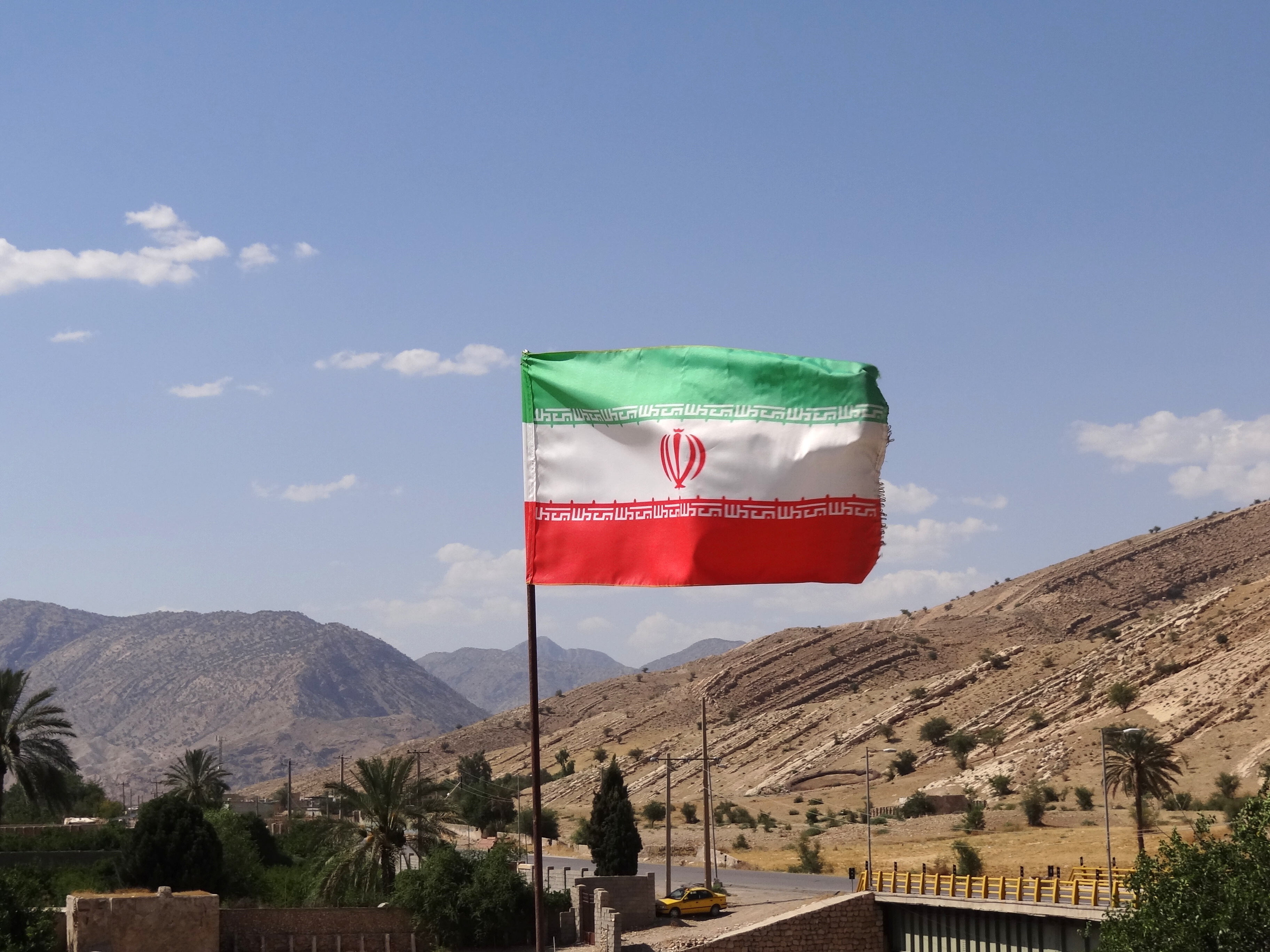Want to renegotiate the Iran deal? Much harder than it looks
Editor's Note: This piece originally appeared on Markaz.
Donald Trump’s election places in immediate peril the Joint Comprehensive Plan of Action (JCPOA) reached by Iran and the P5+1 (China, France, Germany, Russia, the United Kingdom, and the United States). We don’t know what Trump will do with the JCPOA, nor do we know for certain how he will approach Iran more broadly. During his campaign, Trump’s comments on the issue were all over the map.

Published by The Lawfare Institute
in Cooperation With

Editor's Note: This piece originally appeared on Markaz.
Donald Trump’s election places in immediate peril the Joint Comprehensive Plan of Action (JCPOA) reached by Iran and the P5+1 (China, France, Germany, Russia, the United Kingdom, and the United States). We don’t know what Trump will do with the JCPOA, nor do we know for certain how he will approach Iran more broadly. During his campaign, Trump’s comments on the issue were all over the map.
Not for nothing, the old debates around the JCPOA and Iran in general have reheated. Some have urged Trump to leave the JCPOA in place, to be enforced fully and serve as a foundation for future engagement with Iran to address regional issues. Others have suggested “rolling back” the JCPOA as fast as possible—one of them is Mike Pompeo, Trump’s nominee for director of the CIA. Still others have suggested renegotiating the JCPOA, which could mean leaving the deal in place for a time while building additional leverage against Iran, including through non-nuclear sanctions.
Assumptions and arguments underlying renegotiation
But can the deal be renegotiated, especially after the United States expands dramatically the pressure that it can apply on Iran with non-nuclear sanctions and other tools? The concept sounds reasonable, and would align with Saudi and Israeli preferences. Plus, it fits with Trump’s purported plan to cut deals around the world.
As I have written elsewhere, I think an attempt to renegotiate will likely fail, thus dealing a significant blow to the JCPOA itself. I also think that those advancing this argument dramatically overestimate the ability of the United States to renegotiate the deal and underestimate the difficulty of avoiding killing it in the process. There are three core assumptions that undergird the renegotiation argument itself:
- The JCPOA is failing, with Iranian compliance already in doubt (so there is little to risk);
- Sanctions leverage can deliver a better deal and better Iranian behavior outside of the nuclear track (and, in fact, would have if the Obama administration had not retreated from the pressure track in 2013); and
- International partners will have no choice but to go along with the United States.
Through these assumptions, Trump’s administration may conclude that the risk of this approach is slight and/or worth taking. After all, walking away from a failing, fatally flawed deal sounds better and is more reassuring than a decision to bet the farm on a roll of the dice. The trouble, though, is that each of those three assumptions has major problems.
The JCPOA is not failing
Iran is fulfilling its commitments under the JCPOA and so are the United States and its partners. All parties to the JCPOA are getting what they paid for, even if they are not yet in receipt of the bonuses that they may have anticipated and desired.
Iran’s compliance with its nuclear provisions is a central question motivating calls for reconsidering the deal—but the International Atomic Energy Agency (IAEA) has verified, three times now, that Iran has fulfilled the terms of the JCPOA. Add that to the monthly reports of Iranian compliance with the JCPOA’s predecessor arrangement, the Joint Plan of Action (JPOA), and we now have a record of nearly three years of Iranian compliance with its voluntarily assumed international nonproliferation obligations.
All parties to the JCPOA are getting what they paid for, even if they are not yet in receipt of the bonuses that they may have anticipated and desired.
This alone is a cause worth celebrating: for the first time since 2005, Iran has suspended nuclear activities pursuant to an international agreement; for the first time since 2005, additional transparency and monitoring is in place in Iran’s nuclear facilities; for the first time since 2005, we do not face the prospect of a reactor at Arak capable of producing 1 to 2 weapons’ worth of weapons-usable plutonium per year; and for the first time since 2007, the number of installed centrifuges at Natanz has stabilized and amount of enriched uranium being produced halted. The IAEA’s confirmation of these facts has been clear and consistent.
It is true that there have been some implementation problems: Iran has twice now held stocks of heavy water that slightly exceeded the 130 metric tonnes threshold established in the JCPOA, but agreed subsequently to ship out amounts exceeding what was necessary to stay under the threshold. And in both cases, the verification and detection systems of the JCPOA—and the IAEA—worked perfectly. And it is true that some questions about the JCPOA still exist: For example, what is the current definition of recoverable low enriched uranium in the country, and what kinds of research and development may Iran engage in? The JCPOA is itself ambiguous and, though press reports suggest that the Joint Commission has made decisions about these matters, JCPOA participants have not presented this information publicly.
Some have pointed out that it’s impossible to independently confirm IAEA reports of Iranian compliance, since the IAEA reports are not fully public. There has even been the implication that the IAEA has been politicized and that its judgments are no longer its own, but rather those of the P5+1. These comments are perilous, both in their weak foundation and in the consequences of the unnecessary delegitimization of the IAEA. First, the IAEA has an obligation to keep confidential some aspects of what it knows about the Iranian nuclear program. Second, a relative paucity of news on Iran’s program is not necessarily bad news, particularly when clear statements about Iranian compliance are being offered. It is worth noting that a similar mindset persisted with Iraq in 2002-2003, to our common lament. The incoming Trump administration should take seriously what the IAEA and, indeed, what the intelligence community provides, rather than start with the assumption that the absence of smoke means a fire is being carefully hidden or baselessly undermine the conclusions both reach, as Trump did during his campaign. And what intelligence has shown, whether it fits Trump’s perceptions or not, is that the JCPOA did achieve its purposes and, as of this writing, Iran is meeting its terms. To undermine or damage the JCPOA because of what Iran may do in the future is simply not sensible. Moreover, it helps to create a sense that Iran can never be trusted, no matter what the IAEA or intelligence community reports, which ultimately would be inimical to any renegotiated deal Trump might produce.
U.S. sanctions leverage cannot automatically deliver a better deal—it is finite and the leverage it affords is limited
Though the United States has considerable economic power, its power—and its leverage— remains limited. There are practical limitations to what the United States can achieve in wielding its economic might, and there are costs to the wielding.
Some have argued that the United States gave up leverage in seeking the JPOA when it did. They point to Iran’s cratering economy in 2011-2013; its insolvent financial sector; and high unemployment and inflation rates. They also contend that Iranian President Hassan Rouhani’s mandate for economic reform, stemming from his election, would have made him bend eventually.
But I, and others, think that sanctions leverage had reached its zenith, or near enough: Iran made an economic rebound in 2013, with inflation, unemployment, and GDP growth having stabilized before JPOA sanctions relief; oil prices were high; there were no reasonable new targets for sanctions imposition, with most of Iran’s banks, its primary export industries, and service industries under sanctions; and there were few indications that real economic dislocation was going to lead to regime-damaging pressure.
It is inconceivable that, in the face of the Rouhani government’s willingness to seek a deal via the P5+1, the United States would have been able to stay away. Had the United States held out for an ideal outcome (demanding that there be no uranium enrichment in Iran for a considerable length of time, for instance), then international opinion might soon have turned against Washington, identifying it, not Iran, as the intransigent party and damaging a possible sanctions effort. This isn’t to say that the United States had to accept a deal the moment negotiations began, but once a reasonable deal was on the table, the costs of walking away naturally went up.
Iran has not become invulnerable in the past three years.
This same principle is in play for JCPOA skeptics. They can choose to walk away, but they will have to pay the cost of what would probably be incomplete implementation of sanctions internationally. This would sap the overall effectiveness of the strategy and JCPOA opponents have already begun spinning a story to address this problem, arguing that the JCPOA reduced the potency of any future sanctions effort by giving Iran sorely needed relief. Iran has not become invulnerable in the past three years. At best, Iran received two years’ worth of oil revenues previously held up and one year’s worth of oil sales at reduced prices, as well as some limited other trade. JCPOA opponents can try to paint this as immunizing Iran from future pressure (which, of course, also lessens their sense of the burden for failure of their preferred strategy), but the real problem they will face is in getting partners to support their efforts as the Obama administration did through real investment in engagement and negotiations.
Of course, with a lesser sanctions effort, the Trump administration would be hard-pressed to recreate even the JCPOA, let alone something stronger or covering non-nuclear issues.
If we walk, we likely walk alone
It is here that JCPOA opponents, now giddy about the possibility of reversing or renegotiating the JCPOA, have their work cut out. Most of the world is satisfied with the JCPOA and the results of its implementation and does not want to see the JCPOA endangered either to improve its terms now or address other issues. The Trump administration would have to convince countries first to join in a renegotiation effort or embrace a strategy that might imperil the JCPOA to get at non-nuclear issues; and, second, if that stalls or fails, to reimpose sanctions against Iran or accept U.S. sanctions to restrict the business activities of their banks and companies.
In the right context (such as Iranian cheating), the United States could regather the coalition of states necessary to reimpose costs on the Iranian government and perhaps compel compliance. In such a context though, I doubt international sanctions pressure would shift Iranian decisionmaking and bring it back into compliance, judging that an Iranian decision to walk away from the JCPOA would—in effect—be an Iranian decision to restart its nuclear weapons program, come what may.
The United States won’t be able to snap its fingers and compel cooperation from countries, banks, and companies.
Trump would have few allies in a decision to abandon the JCPOA. Some JCPOA skeptics apparently agree, hoping to get Iran to back away from the deal instead by amping up the pressure on Iran for non-nuclear issues. Unless there is Iranian cheating, they judge that there is insufficient global support for a renewed pressure campaign.
The United States won’t be able to snap its fingers and compel cooperation from countries, banks, and companies. Instead, it would be fighting an uphill struggle, all while Iran either divides the international community by playing the victim or by expanding its nuclear program, putting at risk the stability and security of the Middle East.
Conclusion
JCPOA opponents who will soon take power ought to think long and hard before they make precipitous decisions about the deal’s future. On balance, leaving the JCPOA alone and pursuing a regional agenda in ways compliant with the JCPOA’s provisions would be the best policy.
However, should they choose to forge their own path, observers should hold them accountable for the arguments they promulgate about why such a course had to be pursued in the first place. The case against the JCPOA is modest, to say the least, and suffers from flawed assumptions. But, they will be compelling if the JCPOA is seen as an inevitable failure, flawed at the outset and in its execution.
The JCPOA is working well. It is achieving its objectives and arguments against both its negotiation and implementation are hardly inviolate. It can be improved upon and, as I set out separately in a piece with Bob Einhorn, it should serve as a foundation for a stronger, more durable, more stable nuclear order in the Middle East. But, to get to that order, the JCPOA must first survive. It merits that chance and the honesty of its opponents.



.png?sfvrsn=aed44e61_5)
.jpg?sfvrsn=564b5f50_5)
